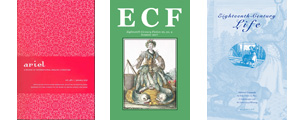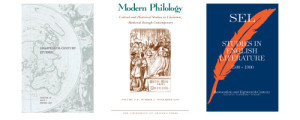Look up “lexicographer” in Johnson’s Dictionary or “Encyclopedia” in the Encyclopédie. Look into the Aleph. “What’s another word for ‘thesaurus’?”
In the first volume of her British Synonymy (1794), Hester Lynch Piozzi, née Thrale, takes up the pairing “IDENTITY and SAMENESS.” Again, we feel we are at the hub or heart of the matter, the core, the center. The two headwords, she explains, “would be nearly synonymous in conversation” only that as “the first is a word pregnant with metaphysical controversy, we avoid it in common daily use, or at best take it up merely as a stronger expression of unchangeable SAMENESS” (295).
The metaphysical controversy alluded to first appears in Locke’s Essay.1 The pregnancy must be laid at his door. Personal identity is an eighteenth-century problem. To paraphrase Piozzi: identity and sameness would be nearly the same, nearly identical, in meaning, were it not for metaphysical controversy.
Sameness is as Sameness does. What then of identity? Is it not the same? In Piozzi I hear Paul de Man’s “repetitive stutter of tautology” (16). We are at the edge or verge of something: synonym as limit case.
Piozzi collects synonyms and, in that sense, pursues synonymy, the study of synonyms. Hers is, as advertised, a British synonymy, one composed for “Foreign Friends” and published at the height of The Terror. Revolutionary politics promise radical equality. Citizens are treated all the same before the law.
Anti-Jacobin Piozzi would preserve distinctions and patrols the borders of English. And so Piozzi does more than alphabetize terms: synonymy is the rhetorical figure by which synonyms are used for the sake of amplification. It is her avowed purpose to “rescue that pleasing rhetorical figure from the imputation of tautology” (vii). She turns up the volume, increasing the distance between the same and the identical as she increases the distance between French and British, between philosopher and patriot.
British Synonymy is a reactionary project. She throws Hume and Lovelace together in the entry on “IDENTITY and SAMENESS.” The philosopher and the fiction, the skeptic and the libertine, are rakish twins. First she cites Richardson, “Mowbray and Tourville with their everlasting IDENTITY are complained of by Lovelace in his anxious agony of mind” (295).2 Piozzi then imagines David Hume reading Clarissa. Hume, notes Piozzi, would correct Lovelace’s usage. The resemblance of Mowbray and Tourville is “no proof of IDENTITY, however it might give a SAMENESS of their character” (295).
Piozzi’s entries are relentlessly moral and political. The sameness of character that comprehends the rakes Mowbray, Tourville, and Lovelace is attributed to Hume as well. The skeptic, she warns, is best despised; “some of them may possibly have a real interest in considering their existence to be dubious, that escape may be effected from accounting for its errors and crimes” (296). Lead us not into sameness, but deliver us through synonymy.
Like Samuel Johnson, Piozzi knows that close work with words is more than “harmless drudgery.” Like the ordinary language philosopher J. L. Austin worrying the difference between nearly allied terms, Piozzi resituates inquiry in the disappearing space between two synonyms. For all the harmlessness and humility rehearsed in the opening pages of British Synonymy, the study of synonymy is promoted as first philosophy.
The short entry on identity and sameness closes by reversing its headwords: “We should therefore be aware of these scepticks, and as little possible I think dip into their books; from whence little amusement or instruction can be derived, but much SAMENESS, particularly in their discourse upon IDENTITY” (296).
Piozzi’s dismissal of metaphysics is punctuated by the subsequent heading, “IDIOTISM, FOLLY, SIMPLICITY, FATUITY.”
Notes
1 In 1694 Locke added a new chapter, “Of Identity and Diversity,” to the second edition of the Essay.
2 See Letter 372 (VI.78). At M. Hall, Lovelace imagines having a “young Lovelace by such an angel” as Clarissa, but his tone soon changes (p. 1147). He is “Tired with Lord M.,” “tired with my cousins Montague,” “tired with Mowbray and Tourville, and their everlasting identity—tired with the country—tired of myself; longing for what I have not” (pp. 1150-1)




